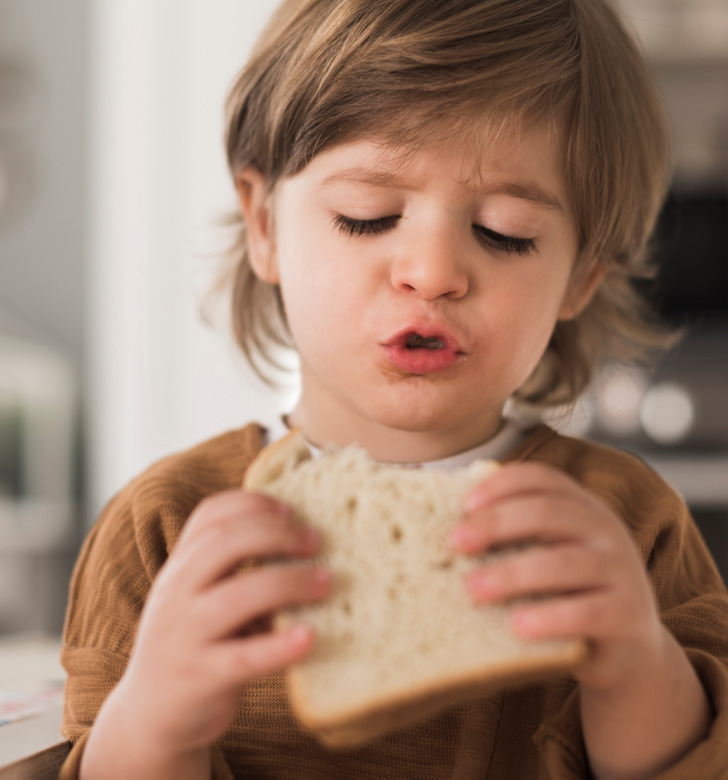I would talk to my son and ask him to consult a doctor, you go with him, have pictures to show your proof. Sounds like your DL doesn't understand or care about your grandson and his health.
I Secretly Made My Gluten-Free Grandson to Eat Regular Food
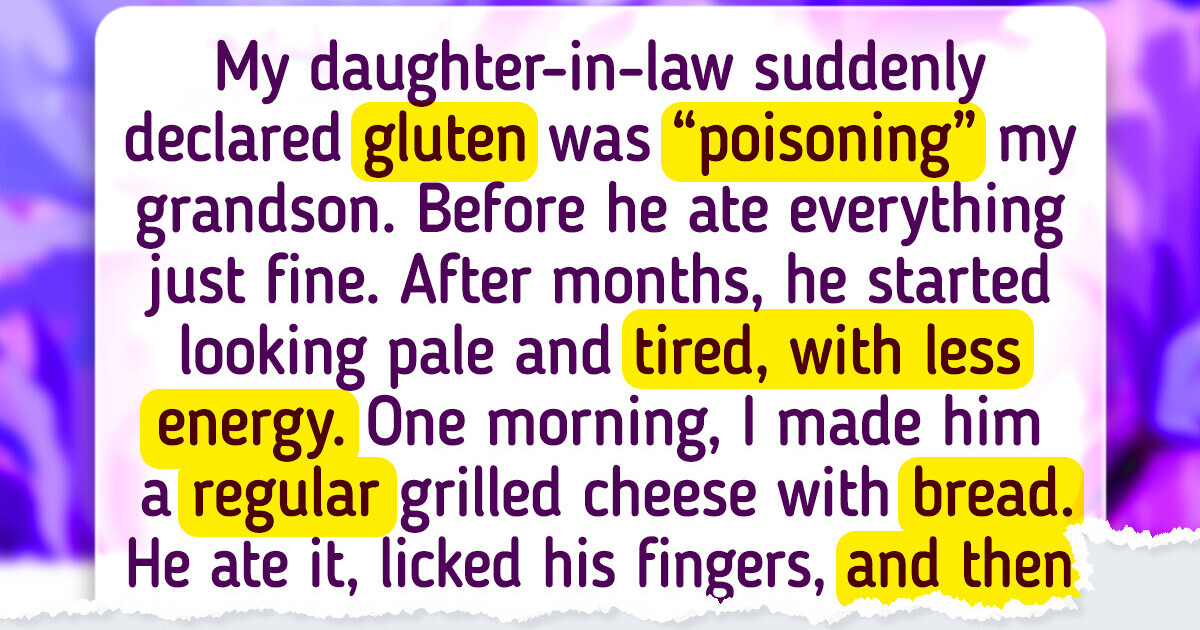
Family is built on love, trust, and shared experiences—but it is also a space where disagreements can arise, especially when it comes to parenting. One of the most sensitive topics within families is how children should be raised, particularly when it involves diet, health, and well-being. The story of a grandmother secretly feeding her grandson gluten, despite his mother’s strict dietary restrictions, highlights just how complicated these conflicts can become.
Here’s the letter from our reader.
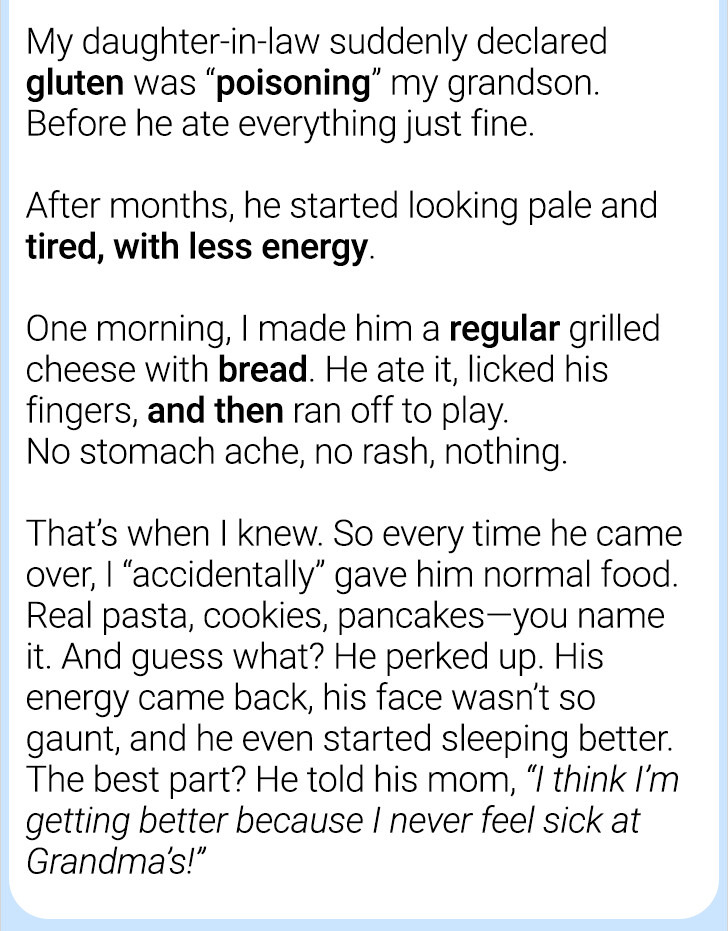
This story reflects a fundamental tension that often arises between parents and grandparents: who gets to decide what’s best for a child?
- From the mother’s perspective, she was protecting her child’s health. Whether or not gluten was truly an issue, she believed in her choice. A parent’s role is to ensure their child’s well-being, and she likely felt she was doing just that.
- From the grandmother’s perspective, she saw a child who was suffering unnecessarily and acted out of love and concern. To her, it wasn’t just about food—it was about making sure her grandson was happy and healthy.

This situation raises an important question: when should a family member intervene if they believe a child is being harmed by a parent’s decision?
The gray areas of parenting disagreements.
Family disagreements over child-rearing practices are common and can encompass a range of issues, including screen time, discipline, education, and medical treatments. These conflicts often stem from deeply personal beliefs intertwined with both scientific understanding and emotional perspectives. While both parents and grandparents typically have the child’s best interests at heart, differing approaches can lead to tension. Acting covertly, even with good intentions, can undermine trust and potentially harm familial relationships.
The Takeaway:
- Respect parental decisions—unless a child is in clear danger.
- Communicate openly instead of acting in secret.
- Be willing to compromise when it comes to gray areas of parenting.
- Seek medical advice when there is genuine concern over a child’s health.
Ultimately, navigating family disagreements requires patience, empathy, and a willingness to see different perspectives. While love and concern may drive our actions, finding a balance between intervention and respect is key to maintaining strong family bonds.
My DIL Broke My House Rules—I Made Her Face the Consequences
Comments
Related Reads
15+ People Who Had No Clue Whom Their Spouse Really Was

10 Dads Who Unexpectedly Embraced Their Daughters’ Partners

12 Stories That Prove Things Are Never What They Seem

20+ Things About Other Countries That Tourists Just Can’t Understand
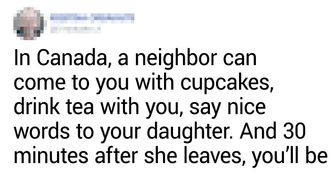
I Excluded My Wife From My Kids’ Core Memories—She’s Too Busy Working

My MIL Demanded Rent for a House That Isn’t Hers, I Turned the Tables

I Refuse to Watch My Ex-Husband’s New Wife Raise My Children

13 Quiet Acts of Kindness That Turned Ordinary People Into Superhumans
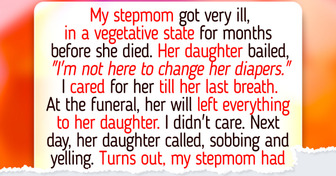
My Daughter Wanted Me to Pay for Her Wedding—I Gave Money to Someone Who Actually Deserved It

I Refused to Follow My MIL’s Rules, I’m an Adult, Not a Toddler

My Sister Tried to Turn Our Family Cabin Into Her Free Resort, So I Changed the Rules

I Refuse to Pay Into My Stepson’s College Fund—I’m Not His ATM

